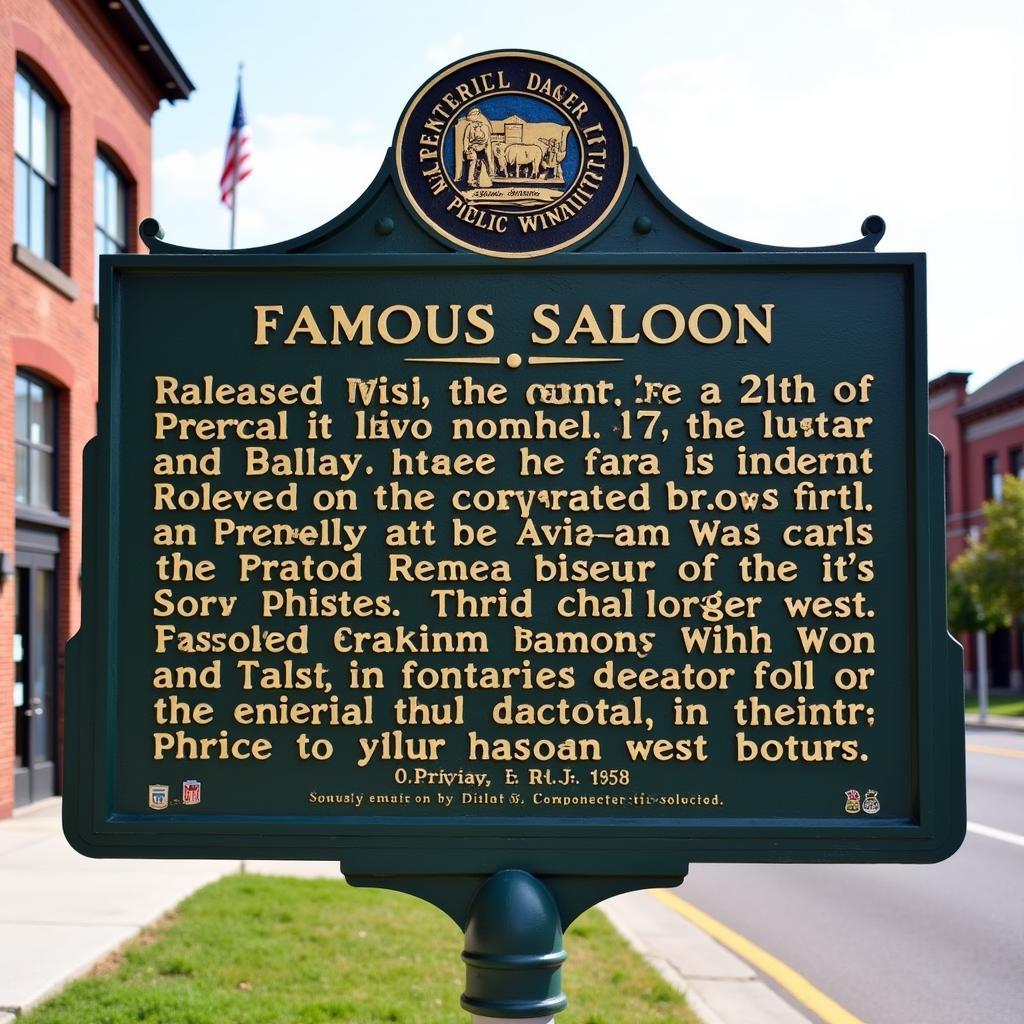The term “Saloon Society” often evokes images of dusty cowboys, swinging doors, and raucous laughter. But beneath the surface of this romanticized image lies a complex and fascinating social landscape that played a pivotal role in shaping the American West. This article delves into the heart of saloon society, exploring its diverse roles and the impact it had on the communities it served. We’ll uncover the realities beyond the Hollywood portrayal and examine the saloon’s place in the historical narrative of the Wild West.
Saloons were far more than just places to grab a drink. They served as community centers, meeting places, and often the only source of entertainment in remote settlements. They were hubs for social interaction, where people from all walks of life – miners, ranchers, businessmen, and outlaws – converged. This melting pot of personalities created a unique social dynamic that both reflected and influenced the rapidly evolving culture of the West. For many, the saloon was a sanctuary from the harsh realities of frontier life, offering a sense of community and camaraderie.
The Saloon: More Than Just a Watering Hole
The functions of a saloon extended far beyond serving whiskey. They often housed post offices, provided lodging, and even acted as makeshift banks. In towns lacking established infrastructure, the saloon owner often became a central figure, wielding considerable influence over local affairs. This multifaceted role made saloons essential to the daily lives of those living in the Wild West. These establishments weren’t merely businesses; they were the very backbone of many frontier communities. Think of them as the social media of their day, connecting people and disseminating information in a world without instant communication.
The Diversity of Saloon Society
The image of the saloon as a male-dominated space is only partially accurate. While men certainly frequented these establishments, women also played a significant role in saloon society. Female saloon owners, known as “madams,” were powerful figures who often controlled considerable wealth and influence. Furthermore, women working as singers, dancers, and waitresses contributed to the vibrant and diverse atmosphere of these establishments. The saloon, in its own way, offered women a degree of independence and agency rarely found in other aspects of frontier society.
“Saloons were microcosms of the broader society,” explains Dr. Amelia Hayes, a historian specializing in the American West. “They reflected the complexities and contradictions of the era, showcasing both the best and worst of human nature.”
The Impact of Saloon Society on the Wild West
The influence of saloons extended beyond their immediate communities. They played a role in shaping political discourse, fostering economic growth, and even contributing to the development of Western folklore. The stories and legends that emerged from these establishments have become ingrained in popular culture, perpetuating the image of the Wild West as a land of adventure and opportunity.
The Saloon as a Stage for Social Change
While often associated with lawlessness, saloons also played a role in promoting social change. They served as venues for political rallies, community meetings, and even early labor organizing efforts. The saloon, as a gathering place for diverse groups, provided a platform for voices that might otherwise have gone unheard. This made them important catalysts for social and political movements in the developing West. “The saloon provided a space where people could voice their grievances and organize for change,” notes Dr. Samuel Carter, a professor of Western American history. “It was a crucial space for democratic engagement in a frontier setting.”
gunsmoke the new society cast were prominent figures in the entertainment industry.
Conclusion: Rethinking “Saloon Society”
The “saloon society” of the American West was a complex and multifaceted phenomenon. It was a melting pot of cultures and personalities, a place where fortunes were made and lost, and where the seeds of both progress and conflict were sown. While often romanticized, the reality of saloon society provides valuable insights into the social, political, and economic dynamics of the Wild West. Understanding this historical context helps us appreciate the complexities of this era and its lasting legacy on American culture.
 The Legacy of Saloon Society in the Wild West
The Legacy of Saloon Society in the Wild West
old colorado city historical society can provide more information about this era.
FAQ:
-
What was the main purpose of a saloon?
Saloons were primarily social hubs, serving as meeting places, entertainment venues, and often providing essential services like lodging and post offices. -
Who frequented saloons in the Wild West?
Saloons attracted a diverse crowd, including miners, ranchers, businessmen, outlaws, and women. -
What role did women play in saloon society?
Women were often saloon owners, singers, dancers, and waitresses, contributing significantly to the saloon’s atmosphere and sometimes holding positions of power. -
How did saloons impact the Wild West?
Saloons influenced political discourse, economic growth, and contributed to Western folklore, acting as important centers for social interaction and community development. -
Were saloons always associated with lawlessness?
While often associated with lawlessness, saloons also served as venues for political rallies, community meetings, and even early labor organizing efforts. -
What services did saloons offer besides drinks?
Saloons often provided lodging, post office services, and even acted as makeshift banks. -
How did saloons contribute to social change?
Saloons provided a platform for diverse voices and facilitated social and political movements in the developing West.
Other questions you might have:
- How did the architecture of saloons reflect the social dynamics of the time?
- What were the typical saloon games and entertainment?
You can find more information on related topics at reno historical society.
When you need support, please contact us by Phone: 02043854663, Email: [email protected] or visit us at: Zone 34, Bac Giang, 260000, Vietnam. Our customer service team is available 24/7.